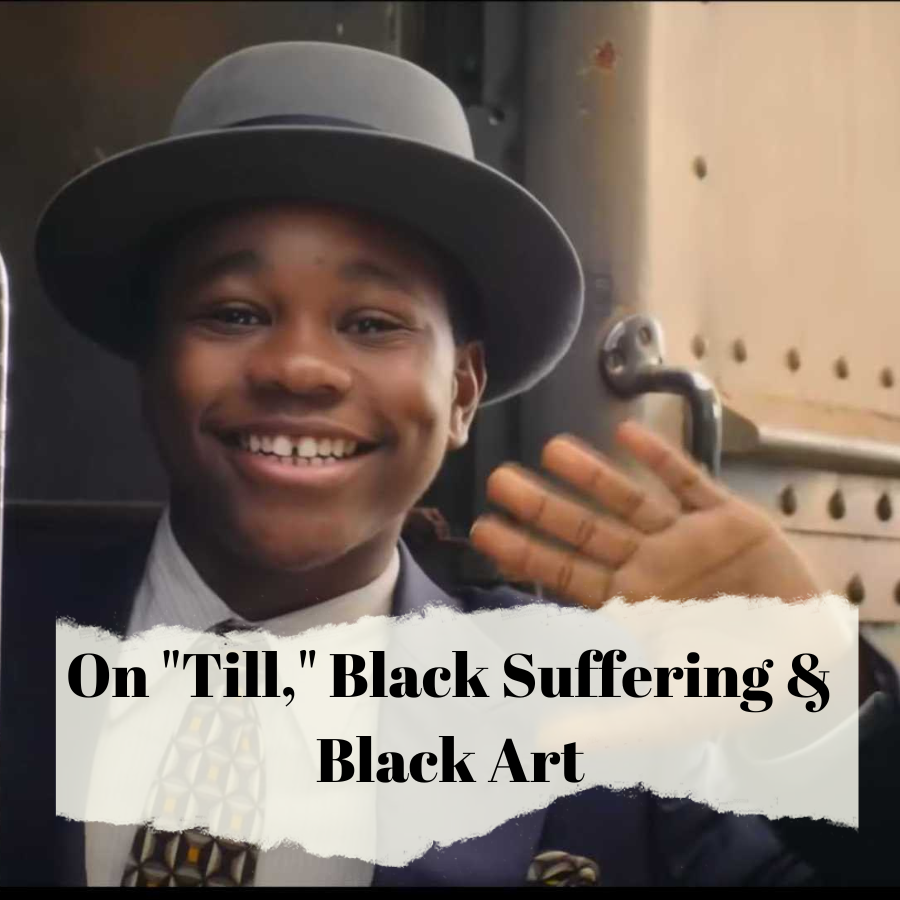[CW: Racism, Lynching, Violence]
Recently, I received a PR email about the release of Till, a biopic about Emmett Till, who was 14 when he was lynched in Money, Mississippi, in 1955. Till was from Chicago, but he was visiting family in Money when he was murdered. The movie itself primarily focuses on Till’s mother, Mamie Till-Mobley, who toiled to bring attention to her Black son’s kidnapping and lynching.
“Let the people see what they did to my boy.”
— Mamie Till-Mobley, 1955
The movie trailer was released on what would’ve been Till’s 81st birthday. Despite the decades that have passed since his murder, his case continues to grab headlines. Just recently, an unserved warrant to arrest Carolyn Bryant Donham for Till’s kidnapping was discovered. A 21-year-old cashier at the time, Donham had accused Till of grabbing her hand and whistling at her as he bought bubble gum at a store in Money. However, author Timothy B. Tyson wrote in The Blood of Emmett Till that Donham confessed in 2007 to lying about the accusations that led to her husband and brother-in-law abducting and fatally beating Till, who was found tied to a cotton gin in a local river.
It took an all-white, all-male jury an hour to acquit Roy Bryant and J.W. Milam for Till’s slaying. Afterward, they were paid $3,000 for an interview in which they admitted to torturing and killing the Black teen.
I often receive emails promoting movies and books. And though I’ve extensively covered Till through the lens of true-crime journalism, the prospect of yet another movie — this time about a child’s lynching, which is well-documented — leaves me with one burning question: What does Till offer that we do not already know?
It’s worth noting that Till may be aiming to deviate from the tropes of Black trauma porn by focusing on the teen’s activist mother, and the love she had for her slain son. But a large aspect of Mamie Till-Mobley’s life was shrouded in suffering, and she died never seeing anyone involved in her son’s murder face justice.
The film is part of an ongoing effort to delicately, artfully, and respectfully depict Black suffering. But on the surface, Till seems to only further muddy those waters…
The Debate Surrounding Till
Till is slated to debut this fall at the New York Film Festival. It is directed by Chinonye Chukwu and produced by Whoopi Goldberg and Keith Beauchamp, who has close ties to Till’s family and produced a documentary about Till’s lynching in 2005.
It gave me pause to see the film was directed by a Nigerian-American woman who has other films of a sensitive nature under her belt, including the 2019 film Clemency. I also didn’t overlook the movie’s logline, which reads, “In Mamie’s poignant journey of grief turned to action, we witness the universal power of a mother’s courage, and ability to change the world.”
However, all of this has not shielded Till from criticism that it may feed into the media’s obsession with Black suffering. Others have noted that Till’s family fought for decades to have Till’s story told, and this upcoming biopic may lead to some learning about injustices that have afflicted — and continue to afflict — Black communities.
However, I’m left grappling with the fact that Till’s slaying — which was graphically covered in Jet magazine at his mother’s request — was credited with sparking the Civil Rights Movement. And how, in the year 2022, there is a breadth of information out there about his case. It’s hard not to feel that at this point, those who aren’t educated about the life of Emmett Till and Mamie Till-Mobley’s tireless work simply did not want to be in the first place.
Mamie Till-Mobley dedicated her life to telling her son’s story, and it would be reductive to undermine that when discussing the impact of Till. It’s also imperative to point out that Black women’s role in the Civil Rights Movement was grossly glazed over, so it is refreshing to see her being centered in this context.
There’s no issue with waiting until seeing Till to form an opinion about what films like this offer. When it comes to ongoing discussions about Till, it should be emphasized that Black people are not a monolith, and there’s no universal sentiment about whether movies like these are detrimental or empowering to our communities. With that said, my feelings about Till are just that: my own.
Resources:
The Blood of Emmett Till by Timothy Tyson
Death of Innocence: The Story of the Hate Crime That Changed America by Mamie Till-Mobley
Between the World and Me by Ta-Nehisi Coates
Smithsonian National Museum of African American History & Culture in Washington, D.C.
The Role Publishing Plays in the Commodification of Black Pain by L.L. McKinney
Black Girls Need Their Happily-Ever-Afters Too by Nicola Yoon
Movies and Shows About Black Joy (or Not About Black Trauma):
Black Panther, 2018
The Wood, 1999
Girls Trip, 2017
Summer of Soul, 2021
Living Single, 1993-1998


